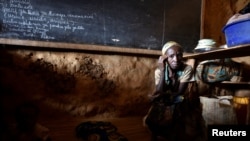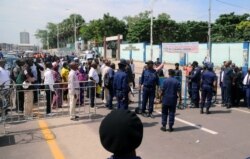The U.N. refugee agency reports it is practically bankrupt. Because of underfunding, it warns it will not be able to assist and protect one-half million refugees in the Democratic Republic of Congo and many of the millions of internally displaced from surging violence and COVID-19.
Latest reports put the number of confirmed cases of COVID-19 in DRC at more than 4,000, the second largest number in southern Africa. At the same time, the United Nations reports an upsurge in inter-communal violence and natural disasters has uprooted hundreds of thousands of people in the volatile eastern part of the country in the past few months.
The U.N. refugee agency calls the situation alarming, but says it is unable to provide life-saving assistance to many of those in desperate need because it has run out of cash. The agency reports only 20 percent of its 168 million-dollar appeal is funded.
UNHCR spokesman, Babar Baloch, tells VOA the UNHCR is being forced to make difficult decisions about what to cut. As a result, he says many people in dire need are not getting the aid they need.
“We say we are helping the most vulnerable," he said. "But a country, which has more than five million displaced people, people on the run every day—the consequences could be tragic and heartbreaking. And, our colleagues on the ground who are seeing all this unfolding, they are trying to do as much as possible with the limited resources.”
Baloch says many of the displaced are not receiving food, water, healthcare and proper hygiene. He says many lack shelter and are forced to live out in the open. He says the rapid spread of COVID-19 across the country is magnifying the already complex, deadly threats facing these vulnerable people.
“One thing we are trying to do with the local authorities is try to decongest the sites, try to help people build shelters, appropriate shelters, which can accommodate a family and they can do the required social distancing. But currently, many of the displaced are living with host communities and in overcrowded sites," he said.
Because of the underfunding, Baloch says UNHCR staff is unable to move the displaced out of these congested sites into accommodations where they could maintain a physical distance and be safe.





